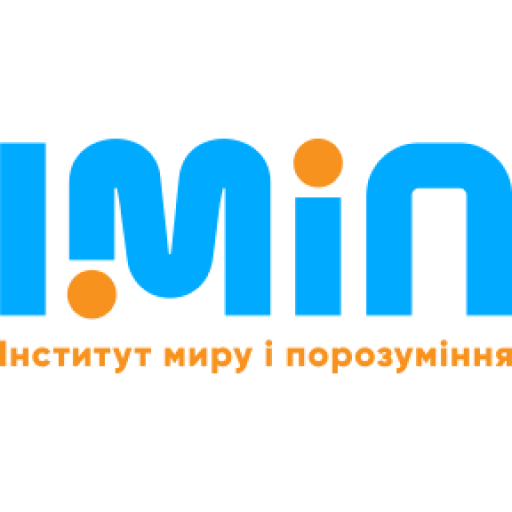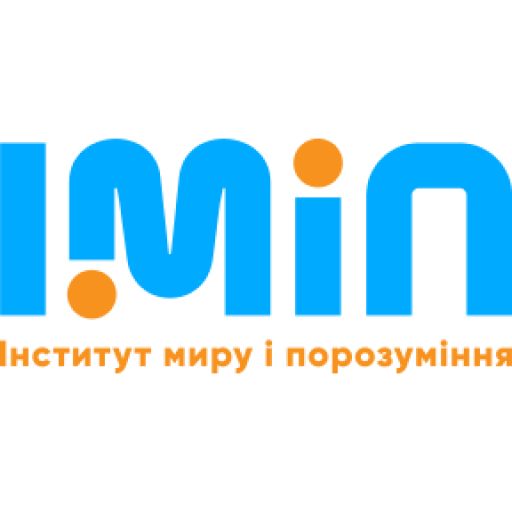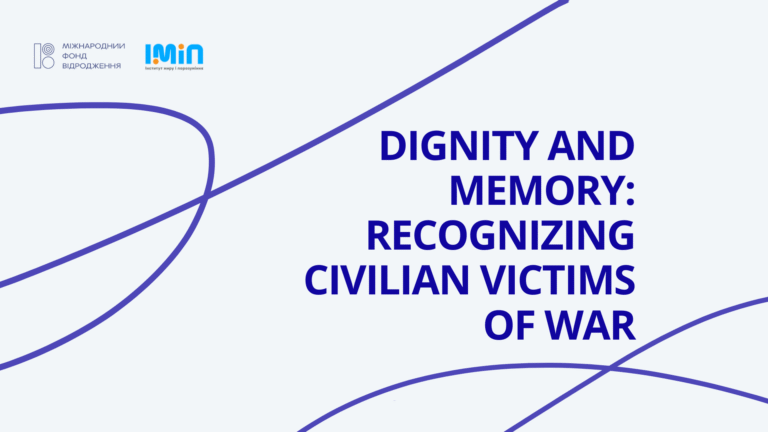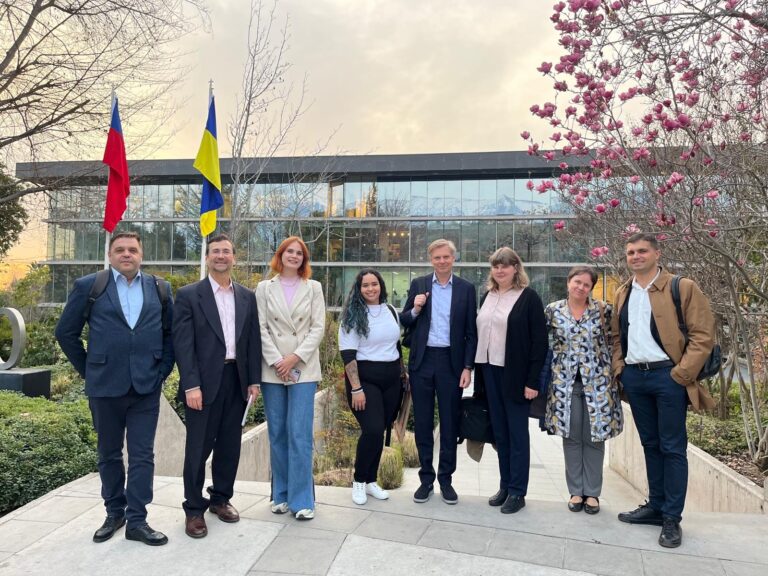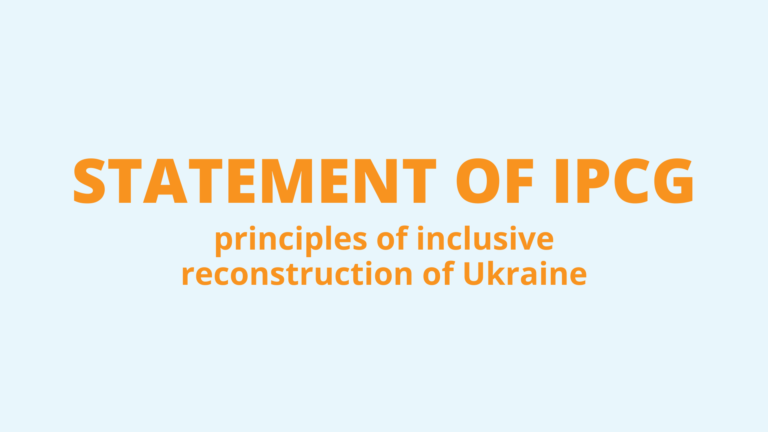On May 16, Kyiv hosted the final conference “From Dialogue to Action: A Common Path to Social Recovery,” which brought together project participants, facilitators, community representatives, experts, and partners – all those involved in creating an open dialogue in Ukrainian communities. The event was the culmination of IPCG intervention in the broader framework of a joint initiative of Ukraine and Romania aimed at strengthening inclusion, cohesion, and social recovery of Ukrainian communities.
The conference was opened with a welcome speech by Andrea Ferro, representative of the Italian Agency for Cooperation Development (AICS). It was emphasized that local initiatives implemented by the communities themselves play a crucial role in the sustainable recovery of Ukrainian society. The importance of international partnership and consistent support for dialogue processes was also emphasized.
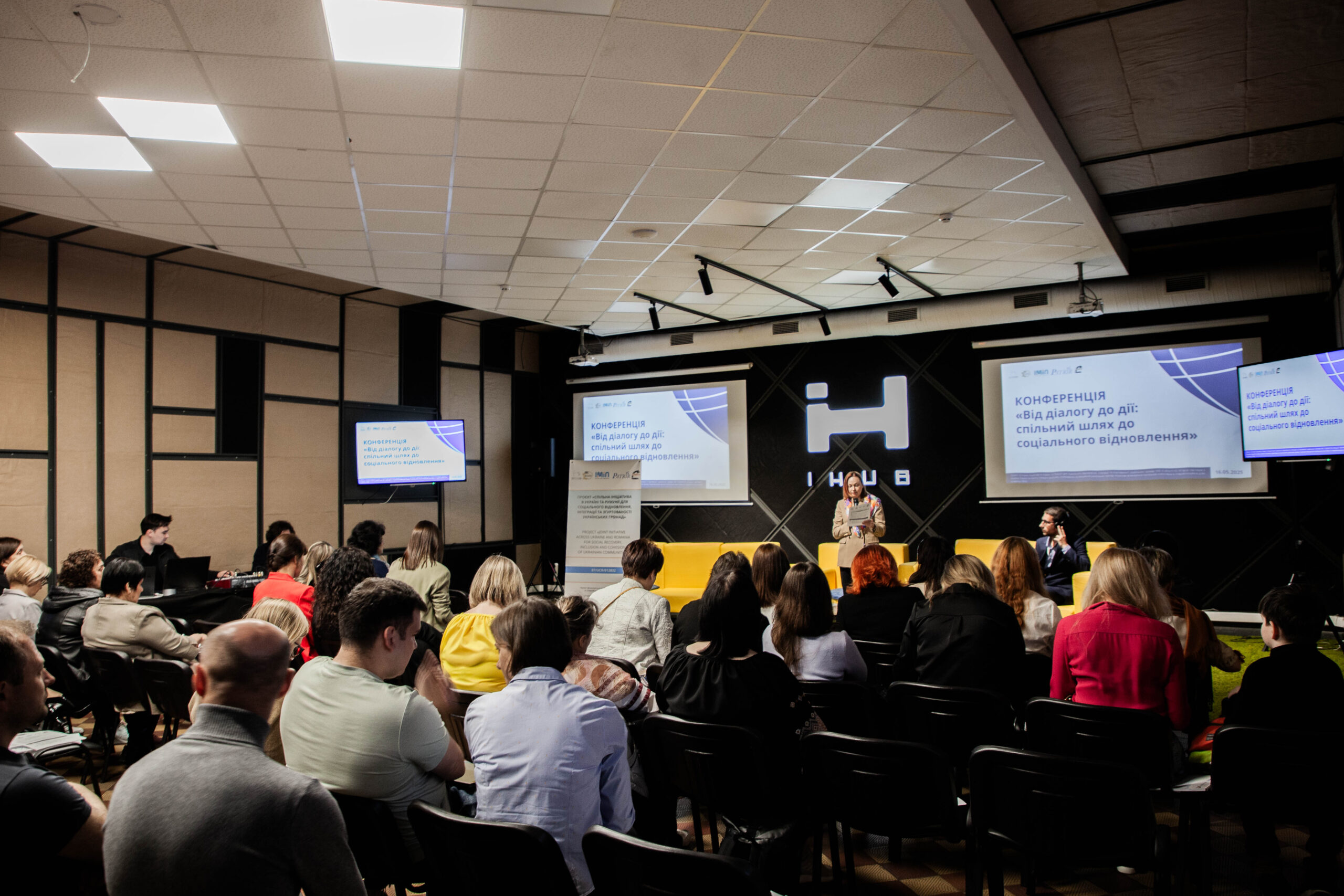
During the presentation, Alyona Horova, Chair of the Board of the Institute for Peace and common ground, outlined the key goals of the project and the approaches used in the communities. These included facilitation techniques, inclusive forms of decision-making, and working with distrust in crisis conditions.
“Our goal was to help communities find their own ability to speak, listen, and act together. Sometimes it started with a few people in a room, but that’s where the real impetus for change came from,” the presentation said.
A special place in the conference program was devoted to the block “Stories of Communities”. It featured speeches by representatives of initiative groups from different regions of Ukraine – those who have been implementing dialogue approaches on the ground in recent months. The speakers told how their journey began: how they came up with the idea to hold the first meeting, how they sought trust among residents, how they learned to listen and be heard.
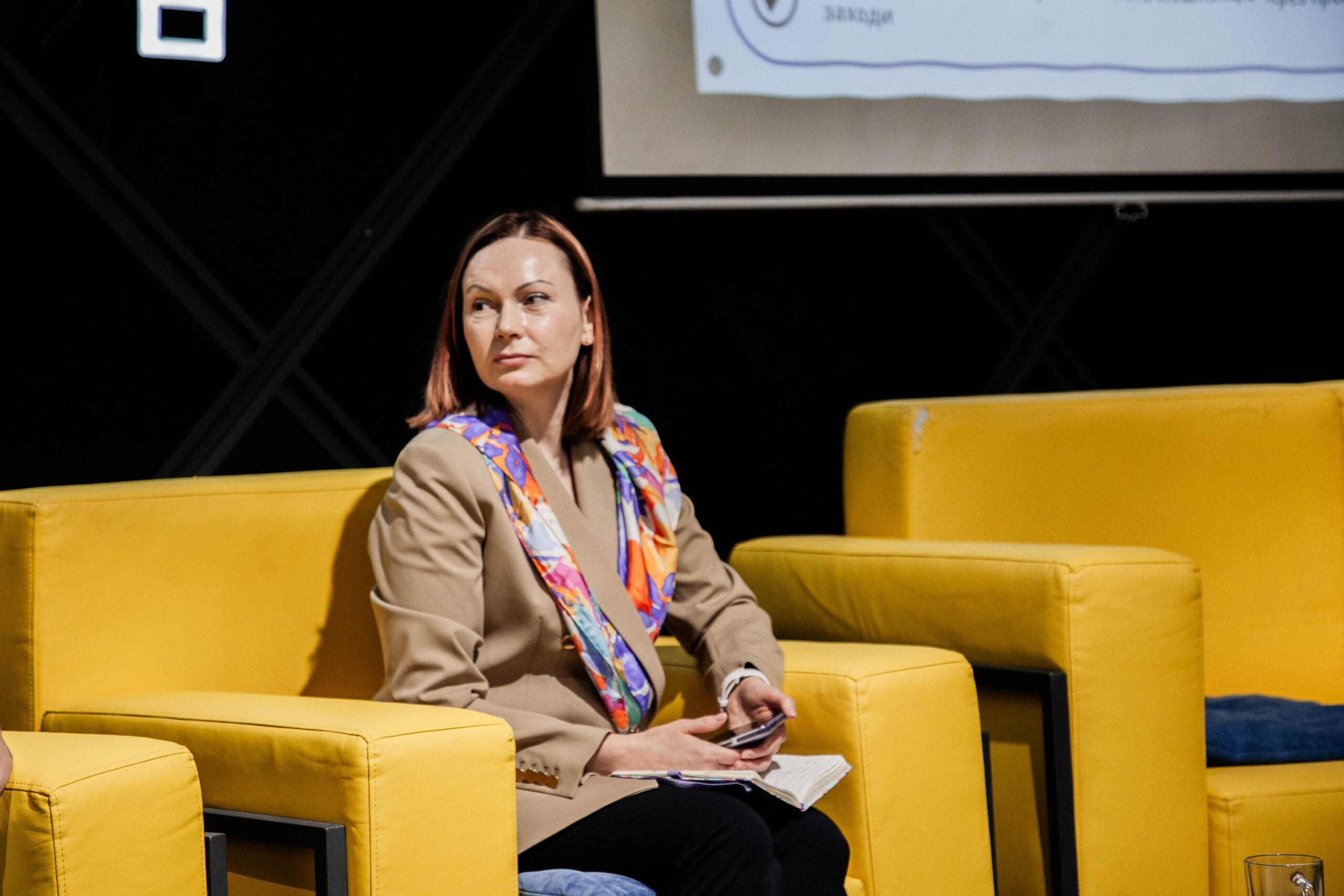
We were talking about communities that had experienced difficult transformations: they had received waves of internally displaced persons, lost infrastructure, and had tensions between different groups of people. In many cases, the first challenge was simply to gather people in one space and give them the opportunity to speak.
“At first it seemed that no one would come. We were worried if anyone would show up at all. But at the second meeting, the room was full. And it was then that it became clear: this format is really needed. People have something to say – they just didn’t have the space for it before,” said one of the speakers.
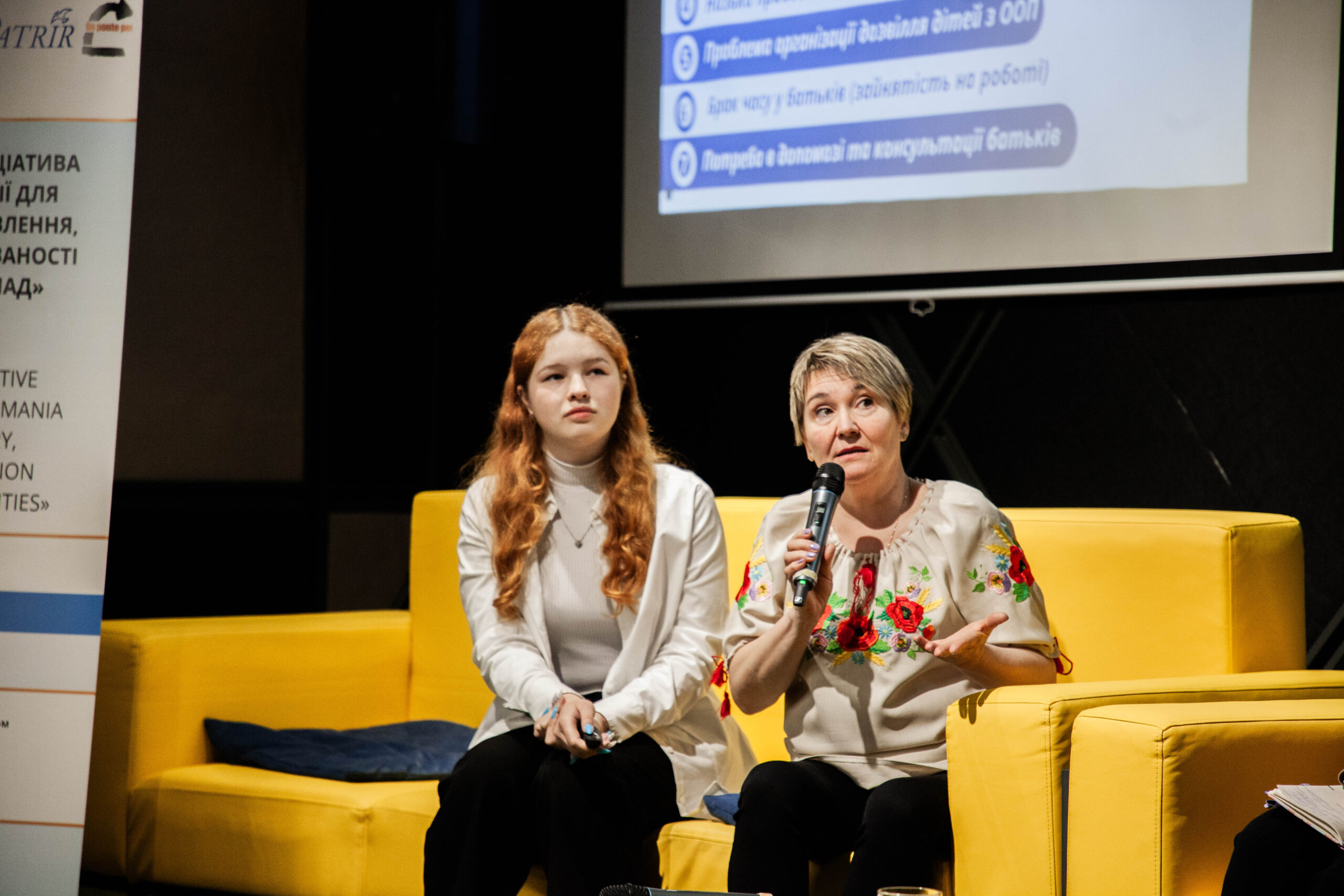
The second part of the conference included facilitated work in small groups. They discussed the lessons learned from the initiative, shared approaches to overcoming barriers to communication in communities, and formulated proposals for the development of dialogue practices in the long term.
The group work was moderated by experienced facilitators: Tetiana Terletska, Oleh Ovcharenko and Svitlana Tarasova. An important outcome was the development of a set of practical recommendations based on the participants’ real-life experience.
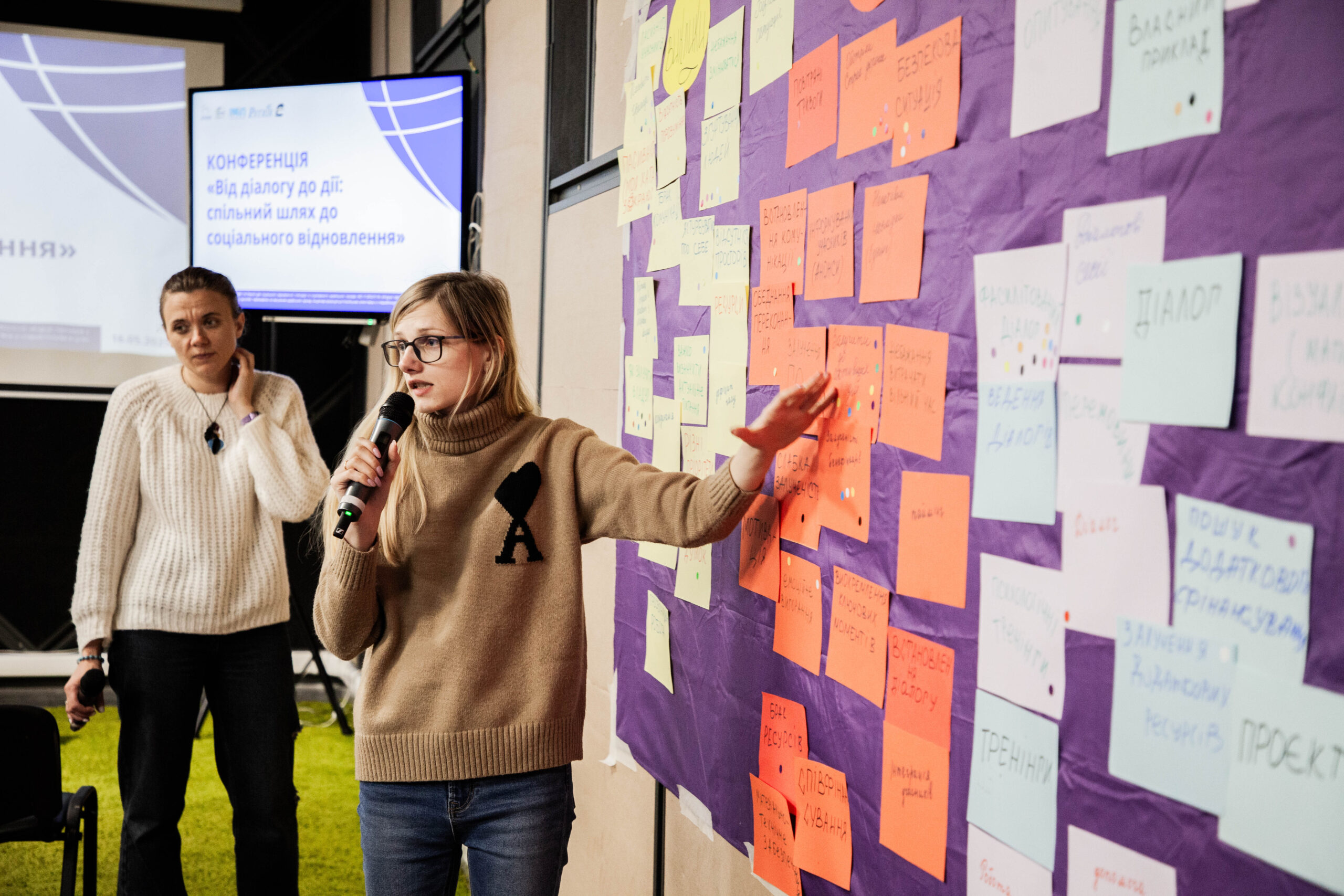
Special attention in the conference program was paid to a session devoted to restorative management as an approach to community development management. This part was moderated by Lidia Fisunova, an expert and trainer at the DreamDiy educational center, a consultant on transforming educational projects, a methodologist, coach, and public figure.
During the session, Lidia outlined the key principles of restorative management: human-centeredness, a combination of flexibility and systematicity in change management.
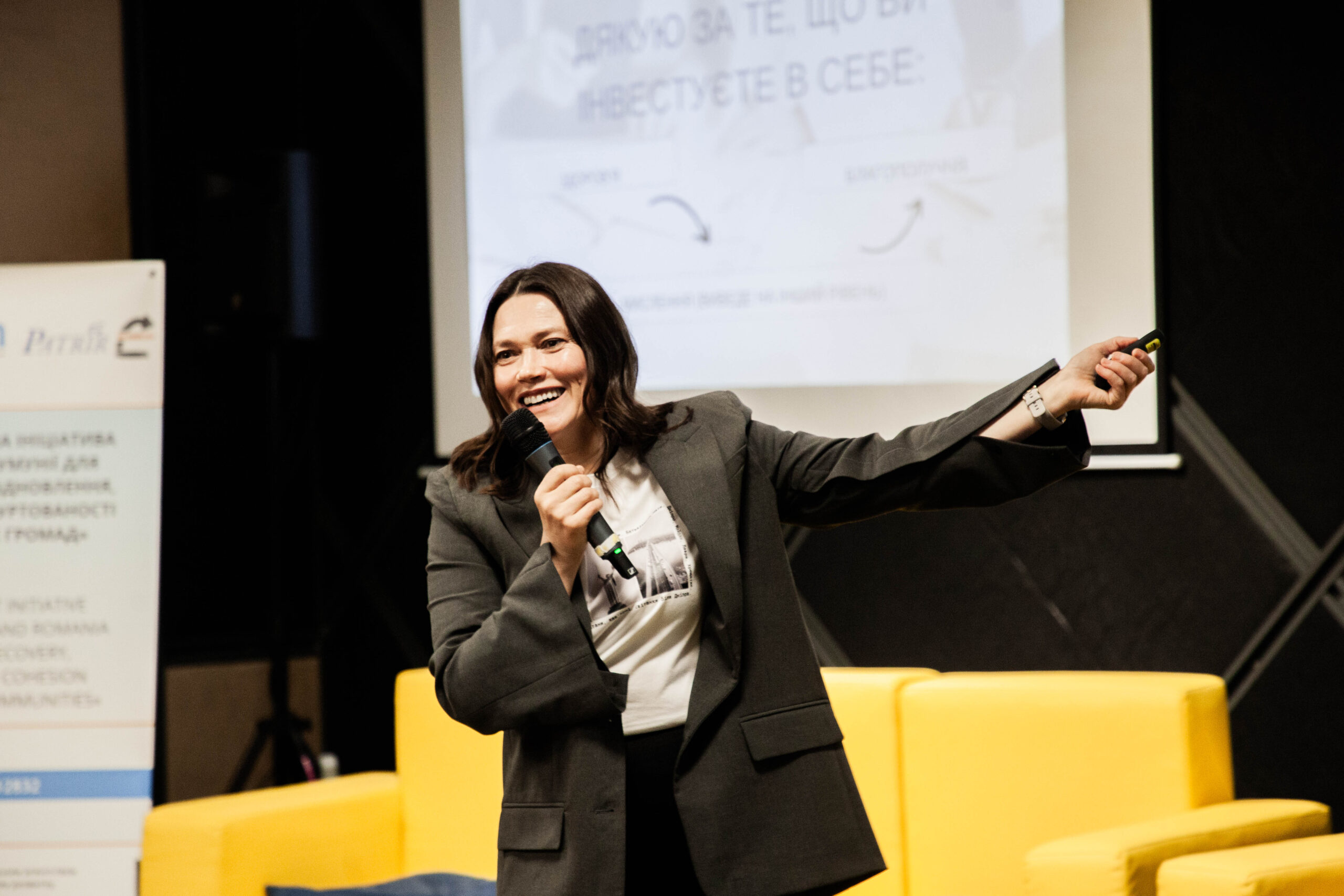
The final discussion of the conference summarized the key conclusions. In particular, it was emphasized that building a dialogue is a process that shapes a new quality of public life. There was a desire to preserve and develop initiative groups, create spaces for interregional exchange of experience, and expand partnerships involving educational, cultural, and government institutions.
“Dialogue building is an ongoing process that changes the logic of interaction in the community. And this is the foundation of sustainable recovery,” the final session noted.
Participants noted the special atmosphere of the conference – trust, openness and willingness to cooperate. It was emphasized that despite the challenges of today, Ukrainian communities retain the ability to coalesce, co-create solutions and mutual support.
The event ended with words of gratitude to everyone who joined the project: community representatives, facilitators, partners, organizations, and everyone who contributed to creating a space for joint thinking and action.
The final conference confirmed the main point: community dialogue is a key tool for recovery, cohesion, and sustainable development. And change begins where people are heard.
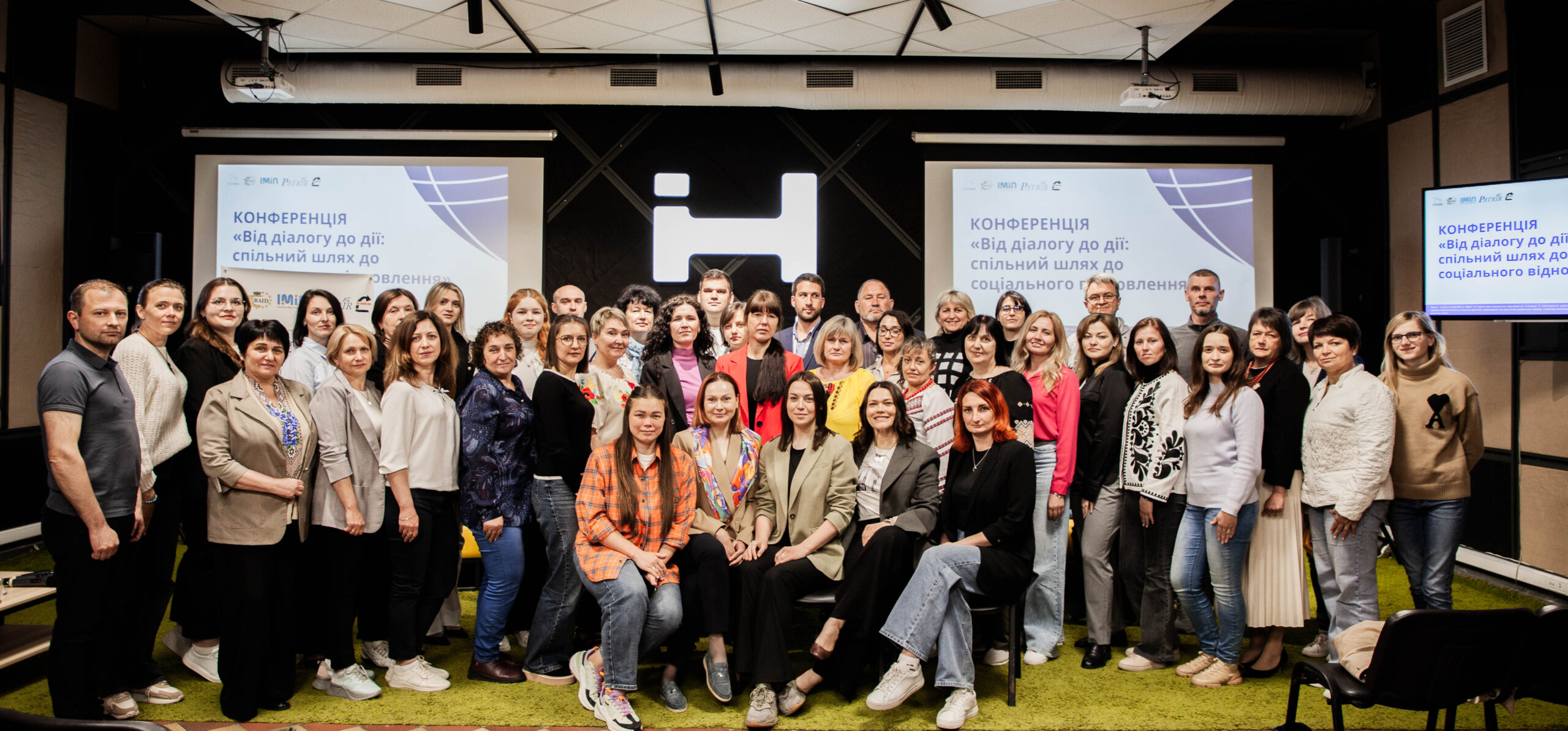
The project “Joint Initiative across Ukraine and Romania for Social Recovery, Inclusion and Cohesion of Ukrainian Communities” (AID 012832/01/0) brings together partners from Ukraine – BAID, as a lead of the consortium, and IPCG, Romania – PATRIR – and Italy – Un Ponte Per (UPP) – in a joint effort to strengthen Ukrainian communities. It is an initiative funded by the Italian Agency for Development Cooperation (AICS).
